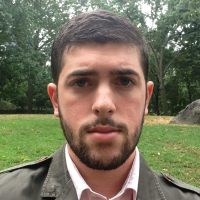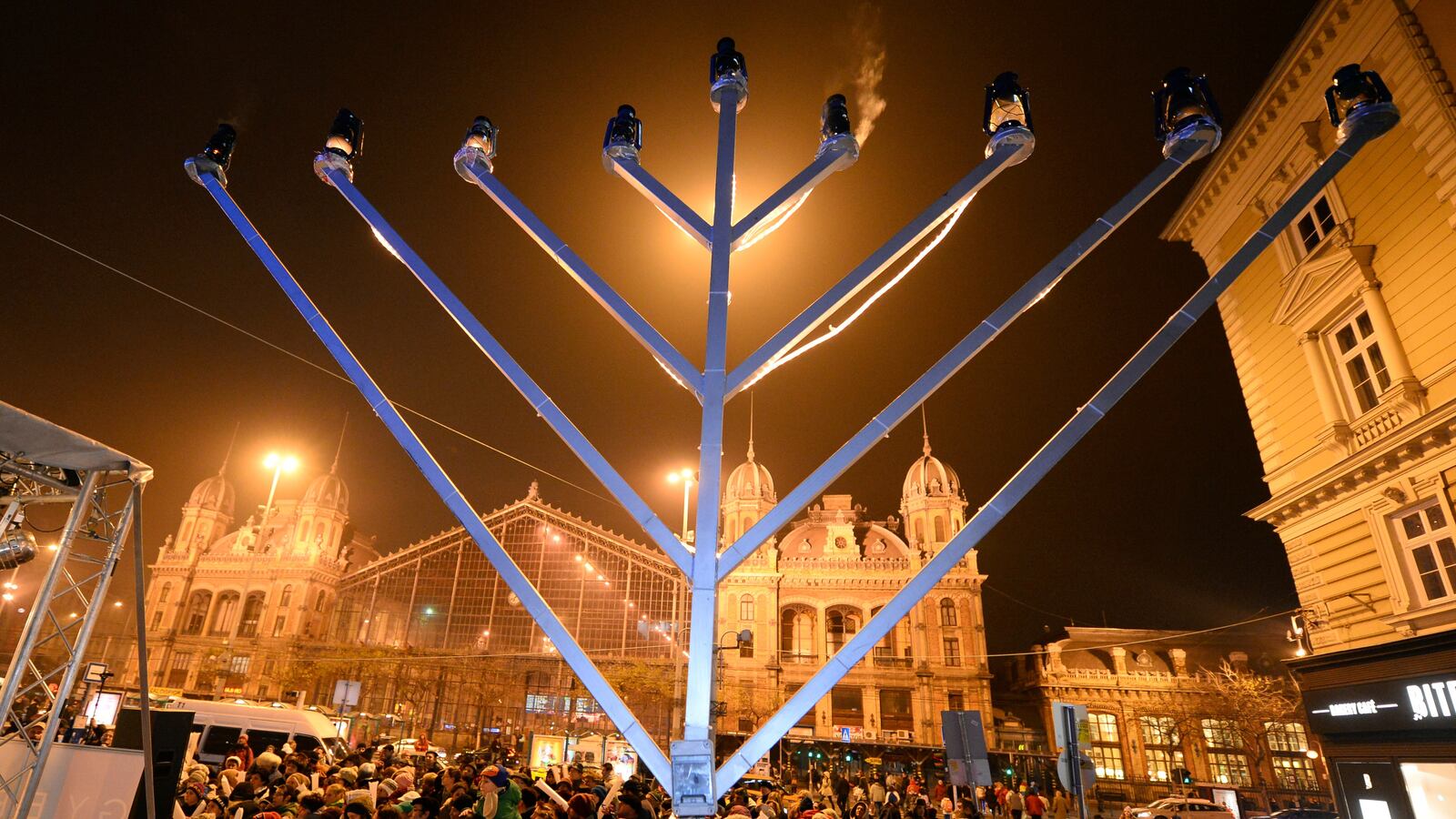My given name is Mattathias. This, asyou may know, is a sort of shibboleth for the most acutely Semiticamong us, one of the very most Jewiest names that there are to befound. I am quite happy with this name. The Mattathias for whom I'mnamed happens to be the hero of the story of Hannukah, which happensto be my favorite holiday, if only for culinary reasons.
My historical namesake, Mattathias benYochanan, was a backwoods priest from Judea who is widely revered forhaving ignited, in 167 BCE, the war that became known as theMaccabean Revolt. Commanded by a Seleucid officer to offer asacrifice to the pagan gods of the Seleucid Greeks who were thenoccupying Judea, Mattathias refused. When another Jew stepped forwardto do so, Mattathias killed both the Jew and the Seleucid officer inanger, then fled into the wilderness with his five sons and theimmortal line “Whosoever is zealous of the law, and maintaineth thecovenant, let him follow me.”

This is the beginning of the story thatis celebrated on Hannukah. You may know the rest of the story:Mattathias dies, and his son Judah Maccabee (“Judah the Hammer.”Really.) leads his followers to victory over the Greeks. There's alsosomething in there about oil miraculously lasting for eight nights.
What is typically omitted from thisstory for the sake of a tolerable holiday celebration is a littlehistorical context. For starters, Mattathias and his family were notsimply the bravest Jews in town, the only ones with the chutzpahto stand up to their occupiers. There was, in fact, a sizablecontingent of Jews who were more than happy with their Hellenisticoverlords, and eager to incorporate Greek influence into theirreligious practice.
These Hellenized Jews, who frequently had their origins in the upper reaches of Judean society, came to be known as the Sadducees. They frequently took Greek names, adopted Greek beliefs, and accepted Greek culture. At the time of the Maccabean revolt, there was underway a profound cultural, political and theological conflict between this faction and the traditionalist Jews, of whom Mattathias and his sons were some. This latter group shortly came to be known as the Pharisees. What had started as a theological argument had, by the time of the revolt, become a deep cultural and social divide, as well as an early example of violent class conflict.
It's also true that, when the Maccabeesbegan to wage war, they did so not only against the Seleucidoccupiers but against Hellenized Jews. A number of modern scholarshave proposed that the conflict that followed was not so much a warof liberation as it was a genuine civil war; the rift betweenorthodox and reformist Jews, these scholars propose, had grown sowide that violence became inevitable.
History records internal Jewish strifeto match and challenge the violence of the Judean war against theSeleucids. In fact, while the First Book of Maccabees portrays theRevolt as a righteous uprising against an oppressive foreign power,the Second Book of Maccabees (by another author) presents it as abattle of “Judaism” against “Hellenism.”
So which is it? Did a group ofrighteous warriors throw off the yoke of imperial oppression? Or dida band of reactionary theocrats put their progressive brethren to theindiscriminate sword?
Obviously, it's a little of both. Ifind it only a little strange that the historical figure for whom I'mnamed has long been lionized for an act that strikes me as plainlymonstrous: the murder of an apostate. This, lest we forget, remainsthe modern prototype for a quintessentially retrograde act. It's forthe crime of apostasy (in this case, writing a novel) that AyatollahKhomenei sent death squads for Salman Rushdie. When Yigal Amir shotand killed Yitzhak Rabin, he did so in the insane belief that Rabinhad betrayed a Jewish birthright.
Make no mistake: the Maccabees andtheir leader, my historical namesake, were anti-imperialists of avery noble sort—at least until they took power and began a verybrief and very ruthless process of territorial expansion. But theywere also religious fanatics of the same pernicious strain thatthreatens peace and freedom today.
Of course, the Seleucids weren'texactly secular liberals themselves, much as we may rightly extol themany brilliant and significant works that Greek culture produced.Antiochus IV had about as much in common with Aristotle as RickSantorum has with Thomas Paine.
We are lucky, though, to live in an agein which we're not asked to choose between two fanaticisms. Therevolutionaries of ancient Judea have multiple heirs inanti-imperialists and freedom fighters the world over. To veneratethe Maccabees for their courage and steadfastness in the face ofimperial might is an understandable practice, and a noble one.
But we might also do well to hear thewords of my ardent namesake as if from the mouth of some modernextremist: as he flees into the hills to wage guerilla war, heinvokes not democracy, but dogma; not freedom, but fanaticism. Seenin this light, Mattathias ben Yochanan's extremist heirs areeverywhere from the Caucasus to the Hindu Kush, from the Appalachiansto, indeed, the hills of modern Judea.
They are everywhere a danger to peace,justice, and freedom; they are a danger, as they were two millenniaago, to everyone who fails to share their zeal. Have a happyHannukah, but please remember: don't let the Maccabees win.





